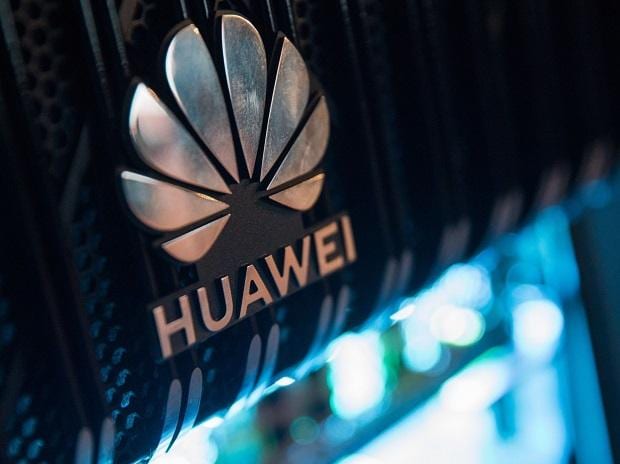By Bloomberg News
Semiconductor Manufacturing International Corp. warned that a hoped-for smartphone market recovery is another year out, and that geopolitical tensions are fomenting a serious glut in global chipmaking capacity.
That outlook clashes with more upbeat comments from Samsung Electronics Co. and Taiwan Semiconductor Manufacturing Co. about mobile demand bottoming soon. China’s largest chipmaker on Thursday reported its third consecutive fall in quarterly revenue, reflecting the depth of the downturn as well as Washington’s broadening campaign to curb China’s tech sector. That result disappointed investors who’d hoped the surprise popularity of Huawei Technologies Co.’s latest smartphones would help offset lost sales.
SMIC is one of the highest-profile companies at the heart of Beijing’s ambitions to build a world-class tech sector less reliant on American innovations. It helped Huawei build the 7-nanometer processor for the Mate 60 Pro, regarded as a breakthrough for two companies the US blacklisted years ago over national security concerns. Riding nationalist fervor, the device sold out rapidly, taking business away from Apple Inc.’s iPhone.
No analysts invoked Huawei during Friday’s post-results briefing. Instead, SMIC executives spoke about how political tensions had spurred a global build-up of domestic chipmaking capacity. They didn’t name any countries but the US, China, Japan and Europe are among those shelling out incentives to attract local manufacture.
SMIC’s shares slid as much as 6.6% Friday, their most in two months, after reporting a larger-than-projected 15% fall in revenue to $1.62 billion in the September quarter. Net income plunged 80%, also missing estimates. Smaller rival Hua Hong Semiconductor Ltd. fell more than 12% — its biggest fall in over a year — as its own management warned about a weak fourth quarter after results missed estimates.
“From a global perspective, capacity will be excessive. It will take a lot of time to digest the new capacities built in recent years,” SMIC co-CEO Zhao Haijun told analysts on a conference call.
Still, shares of SMIC had climbed roughly 40% since Huawei introduced the $900-plus Mate 60 Pro in late August — just as US Commerce Secretary Gina Raimondo — whose department oversees the complex network of restrictions on chips — was visiting China.
Huawei itself shows signs of resuming the growth that Washington’s sanctions derailed. State-backed SMIC is projected to return to growth in the peak December quarter, but its prospects may hinge on whether the US — which last month expanded existing curbs on China’s chip sector — is contemplating further sanctions. US lawmakers have called for more restrictions, seizing on Huawei’s unexpected breakthrough.
In the meantime, executives said SMIC continues to grapple with uncertainty in China’s smartphone market — the world’s largest.
Competition is intensifying in an arena already crowded with players from Xiaomi Corp. to Oppo and struggling to recover from a Covid-era slump.
Smartphone shipments fell 5% in the third quarter and none of the top five players sold more phones than a year ago, according to research firm Canalys. Major Chinese smartphone makers rely on chips from Qualcomm Inc. and MediaTek Inc., but those two firms also outsource manufacturing to overseas contractors such as TSMC and Globalfoundries Inc.
“The current smartphone replacement cycle wasn’t because of new innovations,” Zhao told analysts. “The overall smartphone shipment for next year should be on par with this year.”
Longer-term, it remains to be seen whether Beijing’s overt support for SMIC and chip-related firms will prop up the bottom line.
SMIC is raising its full-year capital expenditure to $7.5 billion from an earlier guidance of roughly $6.35 billion, suggesting it too is ramping up capacity. The company expects to take delivery of some machinery earlier than scheduled after suppliers were quicker to secure shipping licenses, Zhao said.
“China’s drive toward semiconductor self-sufficiency appears to buffer SMIC against anticipated 3Q headwinds in sales and profit margins, despite broader market challenges from stagnant smartphone and consumer-electronics recoveries,” Bloomberg Intelligence analyst Charles Shum wrote in a note ahead of the results release.
Note:- (Not all news on the site expresses the point of view of the site, but we transmit this news automatically and translate it through programmatic technology on the site and not from a human editor. The content is auto-generated from a syndicated feed.))



